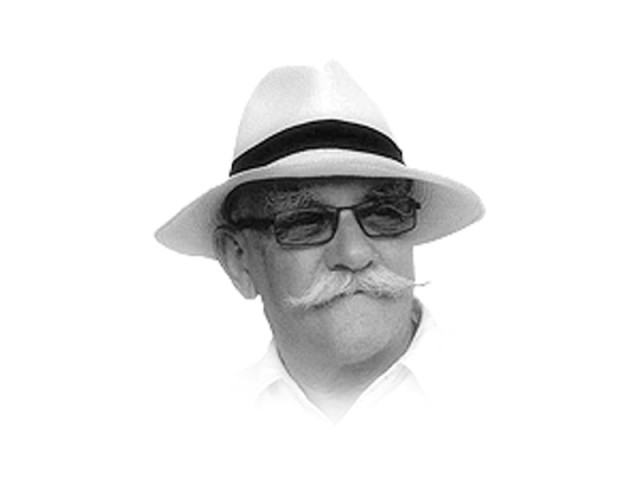A cultural interlude
The Sachal Orchestra and the Sachal Jazz Ensemble now carry the banner for a unique form of Pakistani music

The writer is editorial consultant at
The Express Tribune, news junkie, bibliophile, cat lover and occasional cyclist
My advice was to perhaps have a stab at something on a smaller scale, one of the Gilbert and Sullivan whimsies perhaps like HMS Pinafore, breaking Pakistan into the genre fairly gently rather than taking a deep dive into a complete staging of Wagner’s Ring Cycle. My friends already have a long backstory involving musical theatre in both English and Urdu and if anybody was going to be able to bring opera — or operetta — to the stage in Pakistan it is them.
All of which had me wondering about the state of the musical performing arts here in the Land of the Pure. This is a country positively awash in music and song, there is a musical background, not always entirely appropriate, to practically every human activity that one can think of and a few that might be best left from the pages of a family newspaper. Indeed the entire subcontinent has a history of music-making that goes back to prehistoric times, and this is in common with every other culture that archaeologists and historians have turned their attentions to. Music, whether actively performed singly or in groups and listened to within the family or in a concert hall or arena, is a vital part of life.
That said there is a curious ambiguity towards music, and in parts of our society a vocal antipathy that can manifest itself in the destruction of musical instruments, the banning of live performances and the destruction of lives and businesses that revolve around music. Live music is under threat in parts of Khyber-Pakhtunkhwa in a kind of perverse iconoclasm not unlike that of Cromwell’s Puritans, the Taliban of their day.
No such threat to the Sachal Orchestra and its brother the Sachal Jazz Ensemble that since breaking on to a global stage in 2011 have gone from strength to strength and now carry the banner for a unique form of Pakistani music that blends jazz standards with eastern musical forms and instruments. The Sachal Orchestra and its offshoots demonstrate that the application of a little local innovation (… and a benefactor willing to risk capital on their future success) can have an appeal wider than the home audience. The Sachals today are powerful ambassadors for Brand Pakistan, taking an altogether softer image to curious audiences more used to the violent imagery of conflict and terrorism in the context of Pakistan.
But back to opera. In its Western format there is probably not much of a market for it. Even within the wider world of Western classical music opera is ‘niche’, always expensive to stage, and very expensive to attend. Rigoletto as written by Verdi is unlikely to ever grace the boards in Pakistan, but there is no reason why the story that it tells cannot, and you do not need a fully-grown pit orchestra to accompany it.
The stories that go with opera are often universal — unrequited love, tangled relationships, jealousies and enmities, mistaken identity and pacts with the devil — and little different from the stories that get woven into the interminable soap operas that are the mainstay of much televisual life. It is not much of a stretch of the imagination to see a local iteration of Romeo and Juliet by Gounod (… the opera rather than the ballet) — and the plot if not the music would have local resonances.
There will be those reading this who will question why bother with arcane forms of staged musical performance when half the country is either hungry or illiterate or both. Because music sustains and comforts irrespective of either, is why. Now where is my copy of the Rigoletto libretto? Let’s make music, shall we!
Published in The Express Tribune, October 1st, 2015.
Like Opinion & Editorial on Facebook, follow @ETOpEd on Twitter to receive all updates on all our daily pieces.














COMMENTS
Comments are moderated and generally will be posted if they are on-topic and not abusive.
For more information, please see our Comments FAQ